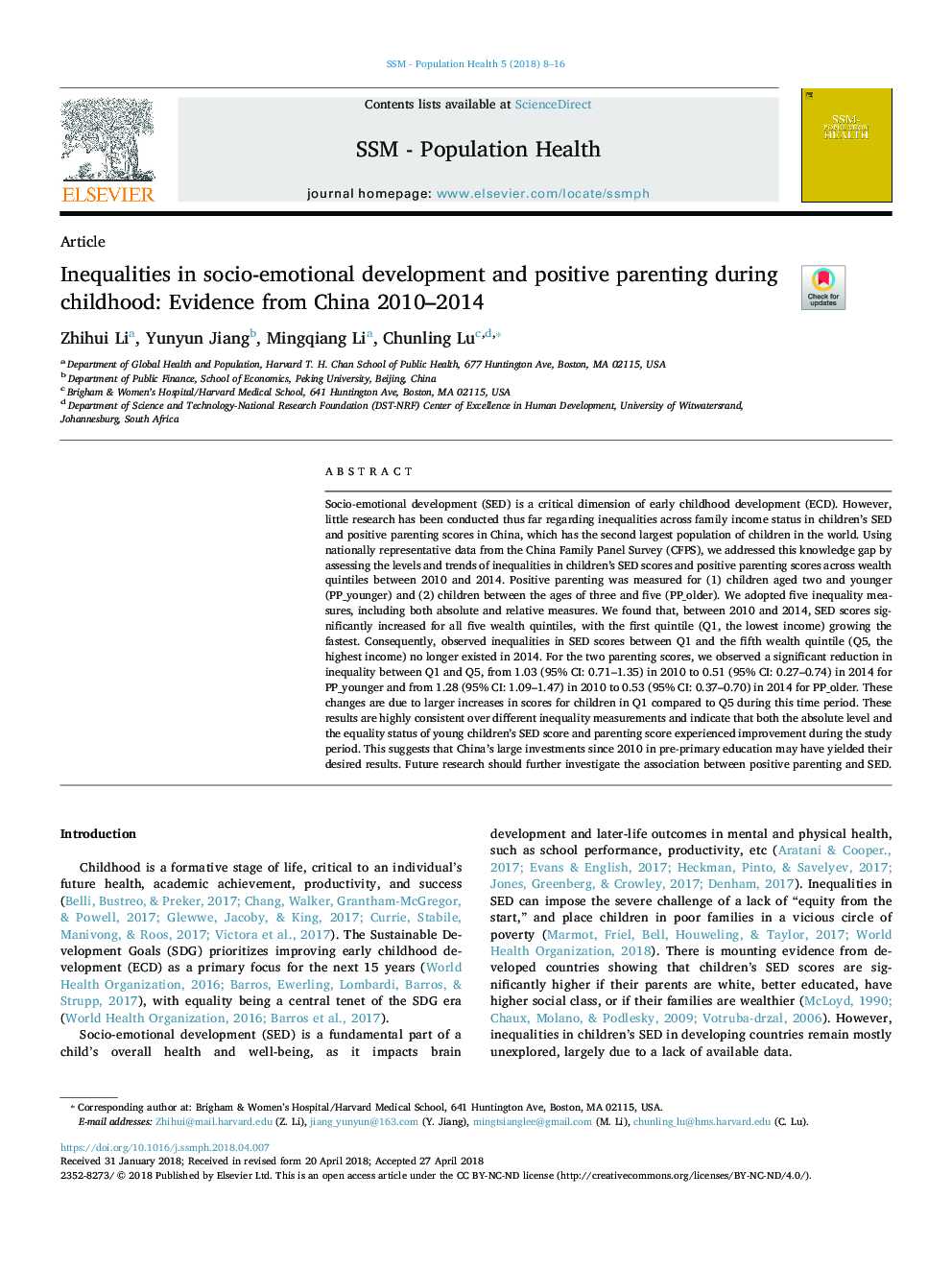| Article ID | Journal | Published Year | Pages | File Type |
|---|---|---|---|---|
| 7527903 | SSM - Population Health | 2018 | 9 Pages |
Abstract
Socio-emotional development (SED) is a critical dimension of early childhood development (ECD). However, little research has been conducted thus far regarding inequalities across family income status in children's SED and positive parenting scores in China, which has the second largest population of children in the world. Using nationally representative data from the China Family Panel Survey (CFPS), we addressed this knowledge gap by assessing the levels and trends of inequalities in children's SED scores and positive parenting scores across wealth quintiles between 2010 and 2014. Positive parenting was measured for (1) children aged two and younger (PP_younger) and (2) children between the ages of three and five (PP_older). We adopted five inequality measures, including both absolute and relative measures. We found that, between 2010 and 2014, SED scores significantly increased for all five wealth quintiles, with the first quintile (Q1, the lowest income) growing the fastest. Consequently, observed inequalities in SED scores between Q1 and the fifth wealth quintile (Q5, the highest income) no longer existed in 2014. For the two parenting scores, we observed a significant reduction in inequality between Q1 and Q5, from 1.03 (95% CI: 0.71-1.35) in 2010 to 0.51 (95% CI: 0.27-0.74) in 2014 for PP_younger and from 1.28 (95% CI: 1.09-1.47) in 2010 to 0.53 (95% CI: 0.37-0.70) in 2014 for PP_older. These changes are due to larger increases in scores for children in Q1 compared to Q5 during this time period. These results are highly consistent over different inequality measurements and indicate that both the absolute level and the equality status of young children's SED score and parenting score experienced improvement during the study period. This suggests that China's large investments since 2010 in pre-primary education may have yielded their desired results. Future research should further investigate the association between positive parenting and SED.
Related Topics
Social Sciences and Humanities
Social Sciences
Health
Authors
Zhihui Li, Yunyun Jiang, Mingqiang Li, Chunling Lu,
